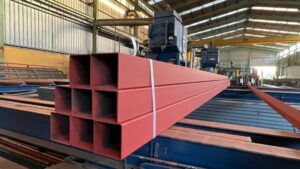
Opinions among Germany’s carmakers diverge significantly on the question of how quickly the electric motor will become the main means of propulsion in a motor car. So do the opinions of steel suppliers as to which material will dominate.
In March, Volkswagen ceo Herbert Diess challenged most of the country’s other carmakers with his call for a quicker complete conversion from the internal combustion engine. Even the industry’s vehicle manufacturers’ association VDA felt uneasy about this turn of events.
“In principle, I wish for an open technology, rather than set a radical course like VW, and confine the research and development on one direction,” says Wolfgang Mitterdorfer, an executive in voestalpine’s Steel Division. At the Handelsblatt/Euroforum conference in Düsseldorf, he was joined by ArcelorMittal Europe’s Paul Brettnacher, who said that the change is also a question of feasibility.
“You need to look at the entire chain; it will take an enormous amount of money to adjust it, and you cannot do it all at once,” Brettnacher said in a discussion monitored by Kallanish. Mitterdorfer said that he himself drives a hybrid car, and the consensus at the event seemed to be that hybrid will likely provide the bridging technology for a while.
Participants at the conference all remain optimistic about the future for strip steel in electric engines, due to its safety, price advantage, and range of grades used. Gisbert Rühl of Klöckner & Co however takes a somewhat different stance. He believes that the role of steel will matter less than that of other technology such as sensors in the electric car. The requirement for high-quality sheet will trend towards the use of aluminium, he believes, and that is why Klöckner has invested heavily in an all-new aluminium processing line at its Becker service centre operation.






